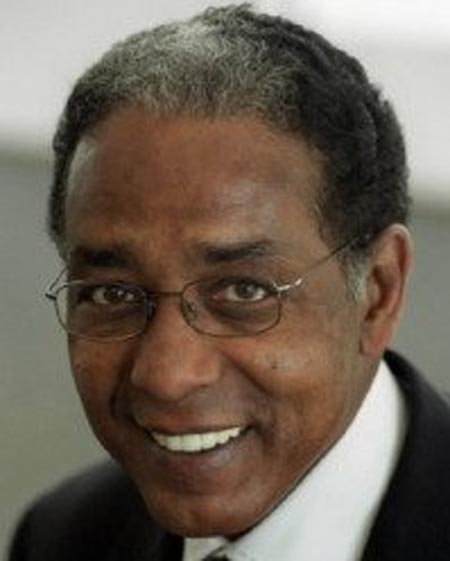
Carroll Armstrong, who helped bring New Orleans into the era of mega-meetings as the first marketing director of what is now known as the Ernest N. Morial Convention Center, died of pneumonia Dec. 20 at Sinai Hospital in Baltimore. He was 65.
Carroll Armstrong was a professional musician before going into the hospitality industry in 1978. Armstrong, a Baltimore native, had been a professional musician before going into the hospitality industry in 1978. He and his wife, Barbara Armstrong, arrived in New Orleans during the 1984 world's fair, when the massive building that would become the convention center was the Great Hall, a 15-acre colossus that housed the Louisiana Pavilion, numerous other exhibits, a lagoon and a monorail track. "His job was to have those conventions lined up once they took out the exhibits," said Warren Bell, a close friend who is Xavier University's associate vice president for university and media relations. "Carroll rose to the occasion." Slightly more than two months after the exposition closed in November 1984, the center was ready to welcome its first convention tenant, Helicopter Association International.
Working closely with the Greater New Orleans Tourism and Convention Commission, Armstrong "was instrumental in the explosion of convention business that came to New Orleans," said Terry Epton, a friend who is president and chief executive officer of USA Hosts Ltd. "Carroll was a pivotal player when there weren't a whole lot of New Orleanians who were well versed in how to compete" for increasingly large meetings, Bell said. "Carroll showed us we can get any damn thing we want." Although Armstrong knew that New Orleans itself is an asset in wooing conventions, "he understood that he had to sell it and showcase it," Bell said. When Armstrong made presentations, he was as precise in his manner and dress as he had been when he was a musician, his wife said. "Everything had to be right. He had a saying: Always say what you mean, mean what you say, and always deliver more than you promise."
Growing up in Baltimore, Armstrong played the piano and trumpet. After studying at the Peabody Conservatory, he was accepted by the Juilliard School. Although Armstrong went to New York City, he didn't enroll at Juilliard. Instead, his wife said, he headed downtown to play music. Among the people with whom he jammed was Miles Davis, the trumpeter who, Barbara Armstrong said, had been his idol. When Armstrong returned to Baltimore, he and his brother, Bob, formed a group called the Soft Tones. To support himself, Armstrong got a day job as a counselor with Baltimore's civil-service commission. The commission director "saw something in him," Barbara Armstrong said, and recommended him for a spot on the city's new convention bureau. He applied and got the job.
In Baltimore and Washington, his next career stop, he helped open a convention center, as he would do in New Orleans. Three years into his New Orleans tenure, the San Diego Convention Center Corp. hired him to lead its marketing department. He stayed there until 1996, when he returned to his hometown to be chief executive officer of the Baltimore Area Convention and Visitors Association, a job he held until 2003. Using his initials, Armstrong formed CRA enterprises and, in 2005,
joinedconventionplanit.com, a Web site that helps people organize meetings. Armstrong was a founder of the Association of Convention Marketing Executives. In addition to his wife, survivors include a brother, Rod Armstrong of Baltimore, and his mother, Margaret DeMan Armstrong of Baltimore.
Source: The Times-Picayune